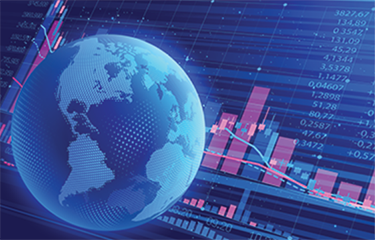Heading into the second quarter of 2023, inflation remains a concern for all industries worldwide, seafood included, according to Kroll Institute Global Chief Economist Megan Greene.
“Inflation is top of mind for many, many businesses. I think there’s a real risk that inflation remains elevated and persistent. I think the probability of that is really high and I think that the impact of that would be pretty high,” Greene, who will deliver the keynote address at the 2023 Seafood Expo Global/ Seafood Processing Global, said in March.
While inflation has peaked in some places, such as the U.S., Greene said Europe has yet to reach that point.
“Unlike in the U.S., inflation in Europe is primarily driven by supply-side factors. So, in a way, the European Central Bank [ECB] is stuck having to hike rates even though it can’t actually do much about the biggest drivers of inflation, which are an energy-shock, food prices as well,” she said. “Also, unlike in the U.S., peak inflation isn’t behind us in Europe. Headline peak inflation is because energy costs have come off so much. If you look at core inflation, which strips out volatile energy and food costs, you can see that it continues on an upward march.”
In early March, France, Germany, Spain, and Belgium all reported an acceleration in inflation,"which was a bad surprise for the ECB,” Greene said.
“It just goes to show that peak inflation is still ahead of us in the Eurozone,” she said.
Wage growth is adding another complex piece to the global inflation puzzle, said Greene, who noted wage growth in the European Union reached 5 percent in 2022 – “well above the Eurozone’s historical average of around 2 to 3 percent.”
“It’s a worry for central bankers to have wage growth so strong because effectively workers can come and say, ‘Look, we have to pay a lot more for everything, so you need to pay us more,’ and companies will say, ‘Fine, we’ll pay more, but we’re not going to let that eat into our profits – we’re going to pass that cost off to the end-user by hiking prices,’” Greene said. “It ends up being this endless ratchet effect that’s every central banker’s worst nightmare.”
Over the past 15 years, Greene said a “glut of savings globally” has been eaten up by the green transition and increases in defense spending.
“Huge amounts of capital are being mobilized, particularly in Europe, but also in the U.S., in order to undergo the green transition, and that will be fundamentally inflationary over the medium-term. In the long-term, I actually think the green transition – if we ever pull it off – will be disinflationary. All of these green technologies will see their revenue streams collapse, that’s the idea. We’ve seen it happen with wind power and solar power already, but that’s not going to happen for a very long time. For the next five years, I think the green transition will be pretty inflationary and we’ll whittle down our global glut of savings,” Greene said. “Defense spending is also being ramped up. That’s the case for Europe, given the Russian invasion of Ukraine.”
An aging population around the world is one phenomenon serving to offset “this huge increase in spending,” Greene said.
“If we have an aging population, people are going to save more so they can pay for retirement. That will offset some of the savings, but net-net, I think ultimately, structurally, inflation is going to be a bit high going forward than what it has been for the past 15 years, which was persistently low,” she said.
In Asia, the economic situation for China is strained, according to Greene, who pointed out that while the country’s economy is expected to grow by 5.7 to 5.8 percent in 2023, those figures aren’t up to par with pre-pandemic norms.
“After the global financial crisis, China’s put the pedal to the metal and stimulus measures and pretty much pulled the rest of the world out of the recession. I don’t think we can actually rely on that this time around,” Greene said. “I think that the expansion will be more measured and more targeted this time.”
Greene also highlighted climate change as a very present global risk.
“For years, I as an economist would say, ‘Yes, climate change is a huge risk coming down the pike.’ I don’t see that anymore – I think is already a risk that we live with. It’s just really hard to forecast when exactly a [climate-related] event will happen and what the implications will be,” she said.
Even though the U.S., Europe, and China are plotting steps towards a green transition, Greene said, “it’s going to take a long time and [no one] is going to hit their net-zero goals.”
“But at least we’re more serious about it now than we were a year ago,” she said.
Join Greene on 26 April for her conference presentation, “Keynote: Navigating the Global Polycrisis,” to learn more about how inflation and other challenges are expected to impact global economies in 2023.
Photo courtesy of Vit-Mar/Shutterstock







